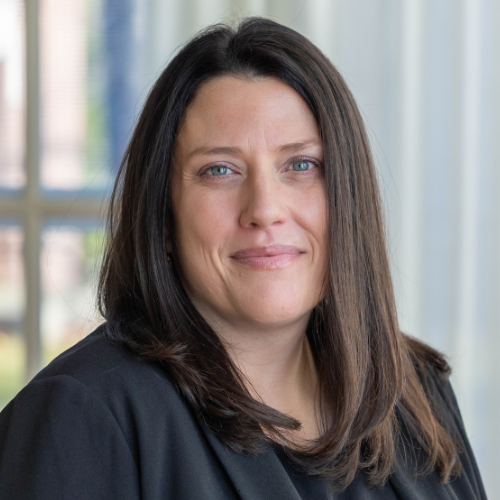M.Ed. in Special Education, 5-12 Courses
The Master of Education (M.Ed.) in Special Education, 5-12 is a 30-to-36-credit degree program leading to a master's degree in education and Massachusetts initial licensure in special education, 5-12. All courses meet over a seven-week term.
Program Prerequisite: A child development course or equivalent completed with a grade of B or better.
Core Coursework
All M.Ed. students are required to take these five core courses before completing the additional coursework for their specialization or licensure. Students can choose to take these core courses online or in-person at our locations in Easton, Boston or Cape Cod.
This course covers current policy and practice related to English Learners (ELs) in schools with a special focus on Sheltered English Immersion (SEI) Settings. Topics will include diversity issues, content/academic vocabulary development and literacy skills (including listening, speaking, reading and writing) to provide teachers with the knowledge and strategies to support ELs in classrooms.
*May be waived with documented, state-approved sheltered English immersion (SEI) endorsement.
This course introduces students to the reality of schools as diverse spaces encompassing a range of student needs and examines efforts to ensure equity in education. Issues of race, class, culture, language, gender, gender identity and expression, sexual orientation, and ability will be discussed & examined, especially how they intersect to reproduce inequality. Students will reflect on individual beliefs in relation to social justice education and democratic education and examine unintended consequences of policy/practice that create or perpetuate inequitable environments and opportunities in schools. Strategies for promoting educational equity and inclusivity will be discussed.
This course examines and unpacks contemporary issues in the field of education and provides prospective teachers with a beginning foundation for understanding the teaching profession and the U.S. education system, including policy and governance. The historical, legal, ethical, and pedagogical foundations for social justice education and democratic education will be explored, as well as the education reform context and emerging policies. The course will include an examination of professional ethics and standards.
Required field experience.
This course explores supportive, preventative, and proactive approaches to addressing the social and academic behaviors of students with disabilities and other diverse populations. Strategies for developing a positive classroom climate to support social and emotional development, including trauma and anxiety, will be central to the learning of the course. A variety of approaches, including the connection between communication & behavior, identifying contributing factors to challenging behavior, FBA, and behavior support plans will be explored.
This course is taken concurrently with a graduate practicum or internship. This capstone seminar will focus on social justice education, professional culture, family & community engagement, collaboration, and curriculum and planning for educational contexts. Students will reflect on experiences in the practica/internship site and current issues and best practice in education, including trauma and social emotional learning.
Courses may be waived based on previous coursework, which may reduce the total number of program credits.
Total program credits: 30–36
Total minimum credits: 30*
Special Education, 5-12 Licensure Courses
This graduate course focuses on the Individual Education Program (IEP) and the role of the special educator in the process, from pre-referral to eligibility determination and placement, as well as implementation. Federal and state laws related to special education will be explored. Collaboration, communication, building trust, and relationships with families and school/community colleagues will be an emphasis of the course.
This course explores language and literacy instruction for middle/high school students with disabilities. The course will emphasize how to design literacy lessons for diverse adolescent learners, including how to assess students’ literacy progress. Course participants will learn about the specific aspects of reading and explore how to support students’ needs in all areas. The course will provide participants with assessment strategies in literacy. Participants will also learn specific strategies to support students writing skills throughout all content areas.
This course examines the pedagogy of math instruction for middle and high school aged diverse students. The course will explore instructional strategies and routines to support all learners to develop mathematical thinking. Participants will develop instructional routines and apply standards in the design of curricula to improve how math can be humanized in classrooms. The course explores issues related to technology, math pedagogy, and math equity.
This three-credit course addresses issues in the assessment of children and youth with disabilities, and reviews norm-referenced and criterion-referenced assessments, developmental scales, and formal and informal observation techniques. Students will acquire an understanding of the issues related to selecting and administering a variety of assessment tools, and to interpreting, communicating and utilizing data from assessments to support the education of students with disabilities.
This course explores how curriculum built on the goal of student understanding, integrated with instructional approaches that emphasize reaching every learner, can provide teachers with more specific teaching targets and more flexible ways to reach them. Students will examine the teaching, instruction, and curricula required to meet the needs of diverse learners, who by virtue of their experiential, cultural, and socioeconomic backgrounds, challenge traditional curriculum and instructional programs.
Course participants will determine how to deconstruct curricular barriers and create and apply curricular solutions, including assistive technology and AAC, to maximize access and academic success.
Practicum
During this hybrid clinical and class-based graduate experience, which commences the practicum, students focus on the design and implementation of standards-based (both state and social justice standards) lessons that are designed using the principles of Universal Design for Learning. Graduate students receive coaching and targeted and actionable feedback on lesson design and implementation from both instructor and class colleagues.
Field experience requirement.
Contact Information
